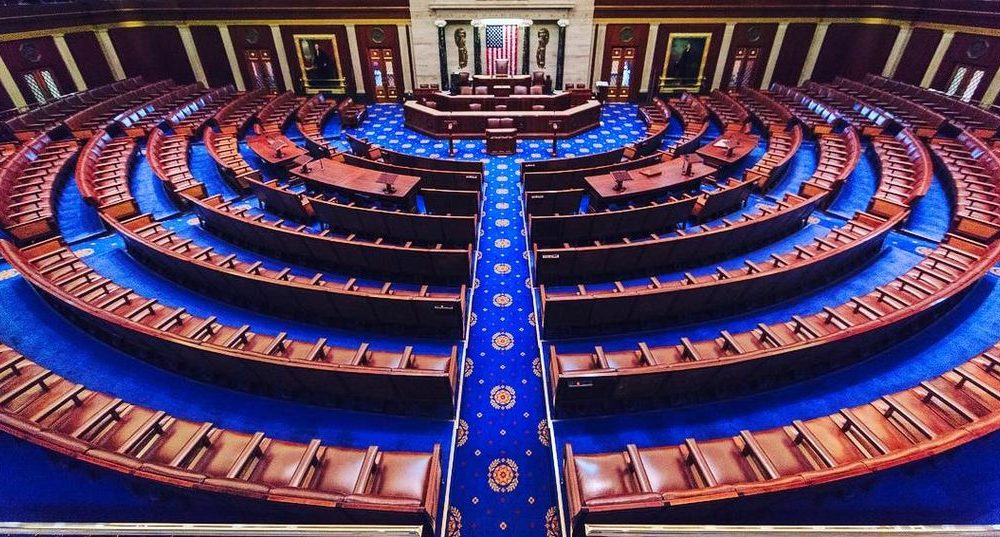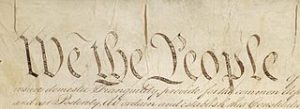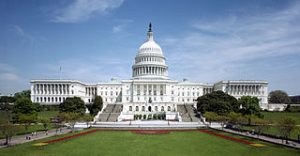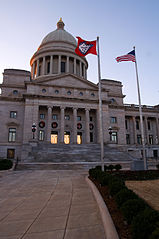October 3, 2022 •
U.S. Senate Passes Disclosing Foreign Influence in Lobbying Act
On September 29, the United States Senate passed the Disclosing Foreign Influence in Lobbying Act. The legislation, Senate Bill 4254, amends the Lobbying Disclosure Act of 1995 to require those registering as federal lobbyists include in their disclosures “the name […]
On September 29, the United States Senate passed the Disclosing Foreign Influence in Lobbying Act.
The legislation, Senate Bill 4254, amends the Lobbying Disclosure Act of 1995 to require those registering as federal lobbyists include in their disclosures “the name and address of each government of a foreign country (including any agency or subdivision of a foreign government, such as a regional or municipal unit of government) and foreign political party, other than the client, that participates in the direction, planning, supervision, or control of any lobbying activities of the registrant.”
The bill, which passed by unanimous consent, next moves to the U.S. House of Representatives.
A bipartisan bill aimed at fighting the influence of foreign actors was introduced into the U.S. House of Representatives. House Bill 8106, the Fighting Foreign Influence Act, was introduced by Democratic U.S. Representatives Jared Golden and Katie Porter together with […]
A bipartisan bill aimed at fighting the influence of foreign actors was introduced into the U.S. House of Representatives. House Bill 8106, the Fighting Foreign Influence Act, was introduced by Democratic U.S. Representatives Jared Golden and Katie Porter together with Republican U.S. Representative Paul Gosar.
The bill itself contains three separate Acts.
The Think Tank and Non-Profit Foreign Influence Disclosure Act would amend the Internal Revenue Code of 1986 to require tax exempt organizations, including think tanks, to disclose when a government of a foreign country or a foreign political party makes aggregate contributions and gifts of more than $50,000, which would then become publicly available in a searchable database.
The Congressional and Executive Foreign Lobbying Ban Act would amend The Foreign Agents Registration Act of 1938 to prohibit former members of Congress, senior political appointees, and general or flag officers of the armed forces from ever registering as the agent of a foreign principal.
The Stop Foreign Donations Affecting Our Elections Act would amend the Federal Election Campaign Act of 1971 to require political campaigns to verify that anyone making an online contribution has a valid address (using a credit card’s three-digit CVV code) before making a campaign contribution and prohibit foreign agents from fundraising for political campaigns.
The bill, introduced into the U.S. House on June 16, has been referred to the House Administration, the Ways and Means, and the Judiciary committees.
April 22, 2021 •
U.S. House Passes Bill to Grant Washington , D.C. Statehood
Today, the U.S. House of Representatives passed legislation to make the District of Columbia the 51st state of the United States of America. House Bill 51, the Washington, D.C. Admission Act, would admit the District of Columbia into the union […]
Today, the U.S. House of Representatives passed legislation to make the District of Columbia the 51st state of the United States of America.
House Bill 51, the Washington, D.C. Admission Act, would admit the District of Columbia into the union on an equal footing with the other states. If passed, the mayor of the District of Columbia would issue a proclamation for the first elections to Congress of two senators and one representative.
The state would consist of all District territory, with specified exclusions for federal buildings and monuments, including the principal federal monuments, the White House, the Capitol Building, the U.S. Supreme Court Building, and the federal executive, legislative, and judicial office buildings located adjacent to the Mall and the Capitol Building. District territory excluded from the commonwealth would be known as the Capital and be the seat of the federal government. The bill maintains the federal government’s authority over military lands and specified other property.
Additionally, the new state would be prohibited from imposing taxes on federal property except as Congress permits.
House Bill 51 refers to the new state’s name as “State of Washington, Douglass Commonwealth.” The bill also establishes the Statehood Transition Commission to advise the president, Congress, the District, and commonwealth leaders on the transition.
Legislation aimed at reforming U.S. campaign finance, lobbying, and ethic laws has passed in the U.S. House of Representatives. H.R. 1, For the People Act 2021, is a sweeping 791-page bill. The proposed new law, which passed the House on […]
Legislation aimed at reforming U.S. campaign finance, lobbying, and ethic laws has passed in the U.S. House of Representatives. H.R. 1, For the People Act 2021, is a sweeping 791-page bill. The proposed new law, which passed the House on March 3, now heads to the U.S. Senate.
Among the changes in the bill, H.R. 1 restructures the Federal Election Commission and amends federal conflict of interest and lobbying laws. Introduced by Rep. John Sarbanes, the bill requires enhanced disclosure of donors making political contributions, creates a multiple matching system for small donations for political campaigns, and amends rules governing super PACs.
If passed, the bill also requires presidential candidates to disclose their tax returns, prohibits partisan gerrymandering, increases oversight over election vendors, creates an automatic voter registration across the country, and changes registration requirements for lobbyists and foreign agents.
January 14, 2021 •
Federal Bills Concerning Ethics Being Reintroduced

U.S. House of Representatives Chamber - from their Public Domain
Legislation aimed at reforming U.S. campaign finance, lobbying, and ethic laws is being reintroduced in the U.S. House of Representatives. H.R. 1, For the People Act 2021, is a sweeping 791-page bill incorporating much of H.R. 1 introduced in 2019 […]
Legislation aimed at reforming U.S. campaign finance, lobbying, and ethic laws is being reintroduced in the U.S. House of Representatives. H.R. 1, For the People Act 2021, is a sweeping 791-page bill incorporating much of H.R. 1 introduced in 2019 by the last Congress. That bill passed the House in the previous Congress but never got a vote in the U.S. Senate.
Among the changes in the bill, H.R. 1 restructures the Federal Election Commission and amends federal conflict of interest and lobbying laws. Introduced by Rep. John Sarbanes, the bill requires enhanced disclosure of donors making political contributions, creates a multiple matching system for small donations for political campaigns, and amends rules governing super PACs. If passed, the bill also requires presidential candidates to disclose their tax returns, prohibits partisan gerrymandering, increases oversight over election vendors, creates an automatic voter registration across the country, and changes registration requirements for lobbyists and foreign agents.
Another bill reintroduced is H.R. 244, Executive Branch Conflict of Interest Act, which expands and establishes new prohibitions related to conflicts of interest involving certain federal government employees, prohibits a federal government employee from accepting a bonus from a former private sector employer for entering government service, and increases lobbying restrictions to two years for certain senior officials. H.R. 244 also prohibits a procurement officer in the federal government from working for a company that received a contract overseen by the procurement officer during the officer’s last two years in government service.
January 29, 2019 •
House Joint Resolution Introduced Eliminates Counting All Noncitizens During Census
On January 24, Rep. Warren Davidson introduced a resolution proposing an amendment to the U.S. Constitution providing members of the House of Representatives be apportioned among only U.S. citizens. House Joint Resolution 34, the Fair Representation Amendment, would eliminate the […]
 On January 24, Rep. Warren Davidson introduced a resolution proposing an amendment to the U.S. Constitution providing members of the House of Representatives be apportioned among only U.S. citizens.
On January 24, Rep. Warren Davidson introduced a resolution proposing an amendment to the U.S. Constitution providing members of the House of Representatives be apportioned among only U.S. citizens.
House Joint Resolution 34, the Fair Representation Amendment, would eliminate the practice of counting noncitizens during each census, counting only citizens for apportionment of representatives and electoral votes.
“Proper census calculations are needed to ensure that every citizen’s vote counts,” says Davidson in his press release. Davidson first introduced the legislation in the last Congress.
Currently, the census counts everyone residing in the U.S., including individuals employed, working, and residing legally in the country.
January 7, 2019 •
First U.S. House Bill Introduced is Sweeping Campaign Finance Bill
The first piece of legislation introduced into the new U.S. House of Representative was a sweeping 571-page campaign finance bill. Introduced by Rep. John Sarbanes, House Bill 1, the For the People Act, requires any organization involved in political activity […]
 The first piece of legislation introduced into the new U.S. House of Representative was a sweeping 571-page campaign finance bill. Introduced by Rep. John Sarbanes, House Bill 1, the For the People Act, requires any organization involved in political activity to disclose its largest donors, creates a multiple matching system for small donations for political campaigns, and amends rules governing super PACs.
The first piece of legislation introduced into the new U.S. House of Representative was a sweeping 571-page campaign finance bill. Introduced by Rep. John Sarbanes, House Bill 1, the For the People Act, requires any organization involved in political activity to disclose its largest donors, creates a multiple matching system for small donations for political campaigns, and amends rules governing super PACs.
The bill also restructures the Federal Election Commission, amends the federal conflict of interest law, and expands the revolving door provision by prohibiting members of Congress from serving on corporate boards. If passed, the bill also requires presidential candidates to disclose their tax returns, prohibits partisan gerrymandering, increases oversight over election vendors, creates an automatic voter registration across the country, and changes registration requirements for lobbyists and foreign agents.
Sarbanes argued the rational for the bill in his press release, stating, “The bold, transformative set of reforms that we introduced today will strengthen our democracy and return political power to the people by making it easier, not harder, to vote, ending the dominance of big money in our politics and ensuring that public officials actually serve the public.”
July 2, 2014 •
Arkansas Adjourns Special Session
Lawmakers ended a special session shortly after midnight on Wednesday, July 2, 2014. The House and Senate gave approval to a package of bills regarding teacher health insurance premiums, prison overcrowding, and limits on lottery monitor games. Photo of Arkansas […]
 Lawmakers ended a special session shortly after midnight on Wednesday, July 2, 2014. The House and Senate gave approval to a package of bills regarding teacher health insurance premiums, prison overcrowding, and limits on lottery monitor games.
Lawmakers ended a special session shortly after midnight on Wednesday, July 2, 2014. The House and Senate gave approval to a package of bills regarding teacher health insurance premiums, prison overcrowding, and limits on lottery monitor games.
Photo of Arkansas State Capitol Building by Stuart Seeger on Wikimedia Commons.
the First Televised House Proceedings
 It’s Friday again and Highlighted Site of the Week has a special edition for you. This week, we honor the anniversary of the first televised broadcast of the U.S. House proceedings, which took place on January 3, 1947.
It’s Friday again and Highlighted Site of the Week has a special edition for you. This week, we honor the anniversary of the first televised broadcast of the U.S. House proceedings, which took place on January 3, 1947.
The first feature is the Historical Highlights page from the U.S. House of Representatives’ History, Art & Archives site. We also have the U.S. Congress and Television page from The Museum of Broadcasting Communications.
On the Archives website, you will find information about what happened during the proceedings. According to the site:
“The first live television broadcast from the House Chamber occurred during the opening session of the 80th Congress (1947–1949). The two-hour broadcast appeared on a local television station and was transmitted to Philadelphia and New York. The broadcast captured the ritual of opening day ceremonies and concluded after Speaker Joseph Martin’s opening address.”
On the Museum site it will give you more in depth details about the congress and their televised proceedings.
If you would like to see videos from the history of the Office of the Clerk, take a look at their YouTube Channel.
Thanks for reading and we will see you next time!
October 12, 2011 •
House Hearing on FEC
Commissioners to Appear
 All six Commissioners from the Federal Election Commission (FEC) are slated to appear before a House Subcommittee tomorrow at 3pm.
All six Commissioners from the Federal Election Commission (FEC) are slated to appear before a House Subcommittee tomorrow at 3pm.
The Committee on House Administration’s Subcommittee on Elections has designated the scheduled meeting “Federal Election Commission: Reviewing Policies, Processes and Procedures.”
Among its other election-related duties, the Subcommittee on Elections oversees the FEC.
June 28, 2011 •
Members of U.S. House May Now Use Skype
Security concerns have been worked out.
 After months of asking to be able to use video conferencing services like Skype and ooVoo, U.S. House members have been given the green light to use it.
After months of asking to be able to use video conferencing services like Skype and ooVoo, U.S. House members have been given the green light to use it.
The benefits are clear – representatives and their staff can have a greater connection to their constituents and to each other. It would be a real money-saver.
The risks were also clear – using the service and placing all those cameras in the offices could lead to unauthorized use and security leaks. Apparently the security issues have been worked out and – with a set of rules – members may use Skype and ooVoo.
For more on this news, you can read “House enables use of Skype, video teleconferencing for members” by Debbie Siegelbaum in The Hill.
Here is another article in Politico: “House allows members to Skype” by Kim Hart.
May 3, 2011 •
News You Can Use from the House Ethics Committee
The U.S. House Committee on Ethics has chosen a new staff director.

You can read Roll Call’s coverage of the news by Emma Dumain here. Jordy Yager writes here in the Hill’s Blog Briefing Room.
The U.S. House of Representatives Committee on Ethics has a press release from May 2.
Photo of the U.S. Capitol Rotunda by UpstateNYer on Wikipedia.
July 7, 2010 •
H.R. 5609 Passes U.S. House
A bill amending the Federal Election Campaign Act of 1971 and the Lobbying Disclosure Act of 1995 has passed the House of Representatives.
 H.R. 5609, which passed on a vote of 408-4, prohibits any registered lobbyist whose clients include foreign governments which are found to be sponsors of international terrorism or include other foreign nationals from making contributions and other campaign-related disbursements in elections for public office. The bill moves to the Senate.
H.R. 5609, which passed on a vote of 408-4, prohibits any registered lobbyist whose clients include foreign governments which are found to be sponsors of international terrorism or include other foreign nationals from making contributions and other campaign-related disbursements in elections for public office. The bill moves to the Senate.
State and Federal Communications, Inc. provides research and consulting services for government relations professionals on lobbying laws, procurement lobbying laws, political contribution laws in the United States and Canada. Learn more by visiting stateandfed.com.

